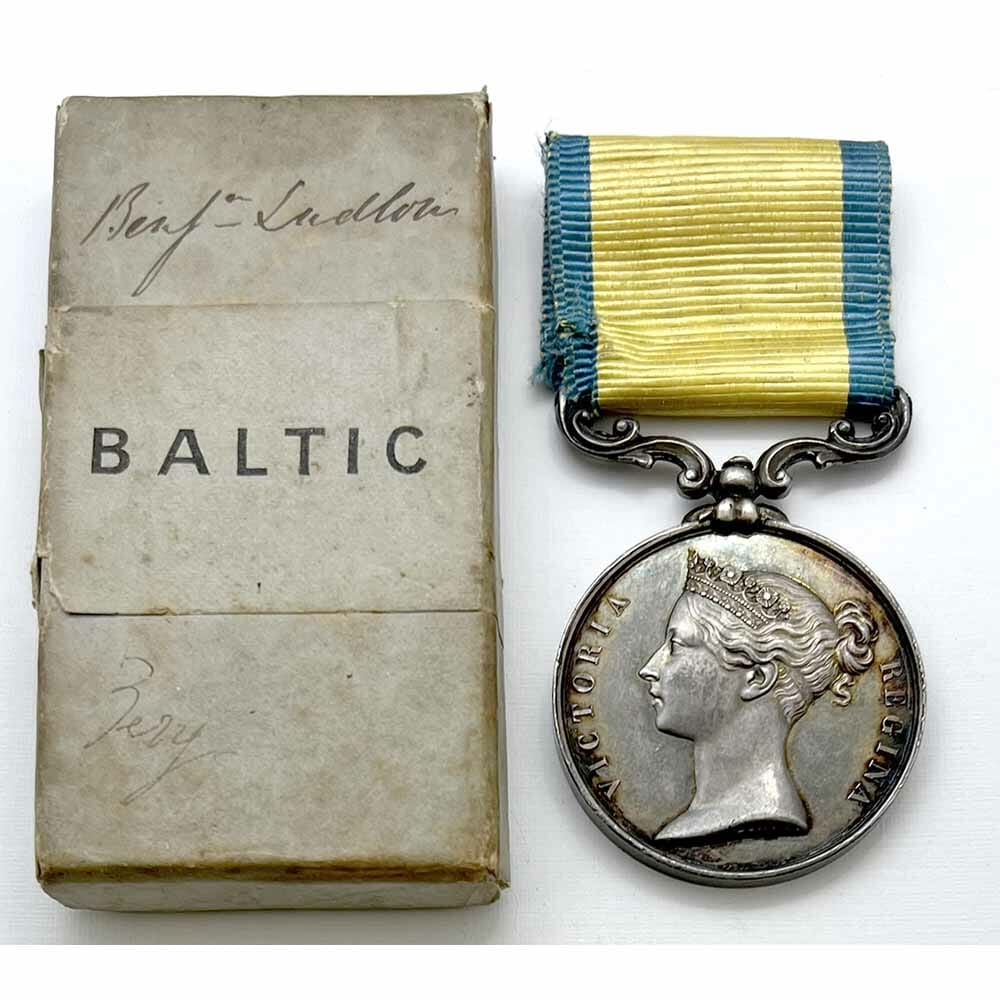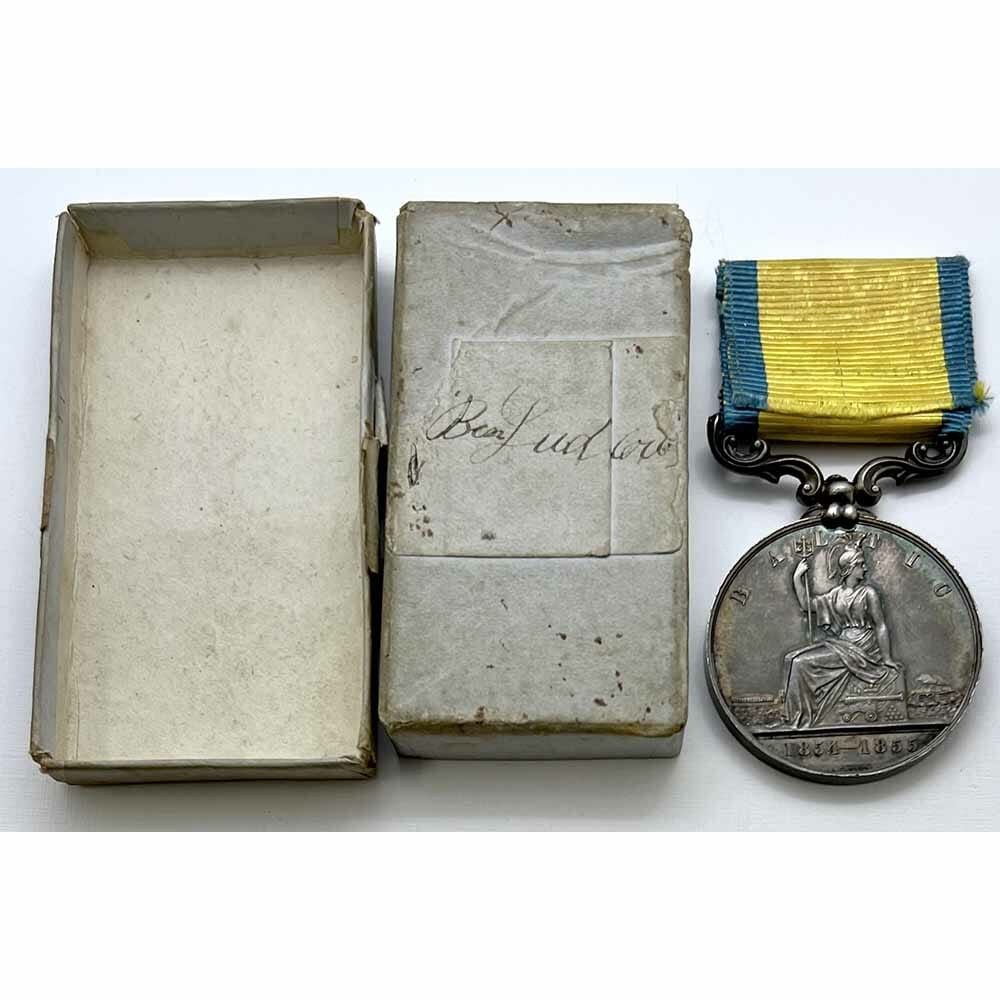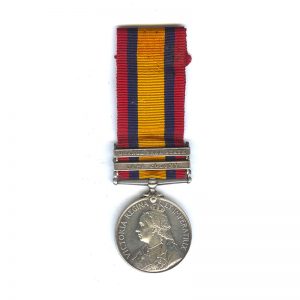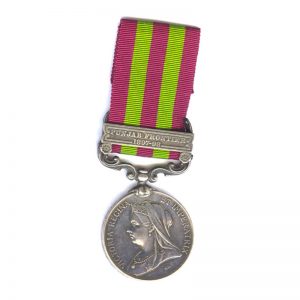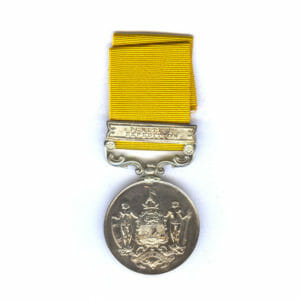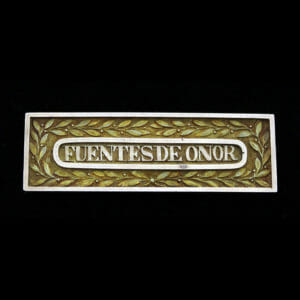Description
Baltic Medal 1854-55, unnamed as issued, in original card box of issue, with his name written on the front and back, rarely seen intact.
The box is inscribed to “Benj Ludlow”
Benjamin Ludlow was first awarded his Baltic Medal for services as an Able Seaman on HMS Cressy during the Crimean War in the campaign in the Baltic Seas.
The medal was shown as issued on 10th April 1857 at Sheerness. However the medal appears to have remained unworn in his box since the issue, after leaving the Navy he joined the Coast Guard as a Commissioned Boatman, and died shortly afterwards, without an opportunity to wear his medal.
Following his service with the Royal Navy, he took up a posting with the Coast Guard, one day in January 1860, he was on the way home from a shift when he was suddenly hit by a train and killed, the incident prompted a lot of local discussion and some arguments at how an inquest was not held including being brought up in the House of Commons due to some petty arguments between the Coroner and Magistrates in regards to pay, also how the Coroner believed it was a waste of time due to the circumstances, his grieving wife and 8 children would spend months awaiting an inquest and the situation was even brought up in the House of Commons.
Gravesend Reporter, 4th February 1860:
“NO CORONER’S INQUEST
The following bare facts are submitted for the consideration of the public.
On the arrival of the up train at the Gravesend Station, a little after 8 O’clock on Saturday evening last, the driver of the engine said to Mr Portch the station master, that the train had knocked a man down by the Denton Crossing, and he did not know in which state the man was.
Mr Portch immediately stopped or gave orders to stop the down train about coming in, and taking a fly and accompanied by another official, proceeded in all haste to the spot indicated, and there found a man lying apparently insensible between the rails.
Mr Portch had him place in the fly and brought him to Gravesend and took him to Dr Young’s, That gentleman examined the man and found that he was dead, but no apparent injuries were perceptible, and he advised Mr Portch to convey the deceased man to the station-house; but it would appear the course pursued was to take the body for identification to the Lobster Tavern, where he was identified as a Coast Guardsman, being Benjamin Ludlow, commissioned Boatman of the Coast Guard on this station and living at East Milton, and just previous to the accident he had been released from his post and was proceeding homewards, when, having to cross the line, the road from the Lobster to East Milton crosses the North Kent Line, he did not notice the proximity of the train, and it is supposed was stunned by the buffer of the engine, thrown down and died on the spot.
On Tuesday, the coroner for this division of the county visited the North Kent Station and having examined Mr Portch, the engine driver, and the fireman of the engine, in the presence of two gentlemen from the London Bridge Station, said that he did not think any blame was attached to the fireman or engine driver. he then paid the Policeman who had summoned him 5s for doing so, and left.
No inquest has been held. The deceased was a very sober man, and has left a widow and 8 children.
We repeat that though the man when found was quite dead, and therefore everyone would suppose there could be no question not only of the propriety but of the necessity for an inquest, none has been held.
The Crooner is promptly informed of the death and the supposed or known cause, when instead of giving instructions for the summoning of a jury, he takes upon himself to decide the case at once. We think it our duty to lay these facts before the public and the authorities, and submit that a thorough inquiry is imperatively called for.”
Gravesend Reporter, 11th February 1860:
“THE LATE FATAL ACCIDENT AT THE DENTON RAILWAY CROSSING
We last week gave some particulars respecting the accident by which Benjamin Ludlow, a coast guardsman, was killed by a train, and then state that no inquest was held, the coroner refusing to do so because the county magistrates have in some instances refused to allow his fees.
It appears that in other parts of the country disputes between Coroners and Magistrates often arise, and in Durham only last week a coroner refused to hold and inquest over a man who had been drowned. It is to be hoped this disgraceful state of things will soon be remedied as we noticed that on Tuesday night last Mr Cobbett asked the Home Secretary if he intended to propose any measure to prevent these differences, when he received for reply that a measure was in preparation and would shortly be laid before the House.
But in the meantime, what is to be done with this case of Benjamin Ludlow? He was a thoroughly steady and well conducted man, and has left behind him a widow of whom we have heard the most satisfactory account as to her mode of brining up her family of 8 children, and we are glad to find that a subscription is opened for her, and trust many will show their sympathy towards her by contributing to it.
Mr R. Marin, of King-Street, receives subscriptions. But still this is not enough, an inquest ought even now to be held, as it is most outrageous that a man should be killed in this manner and the proper legal form of inquiry as to the cause refused through the ill-timed parsimony of county magistrates.”
